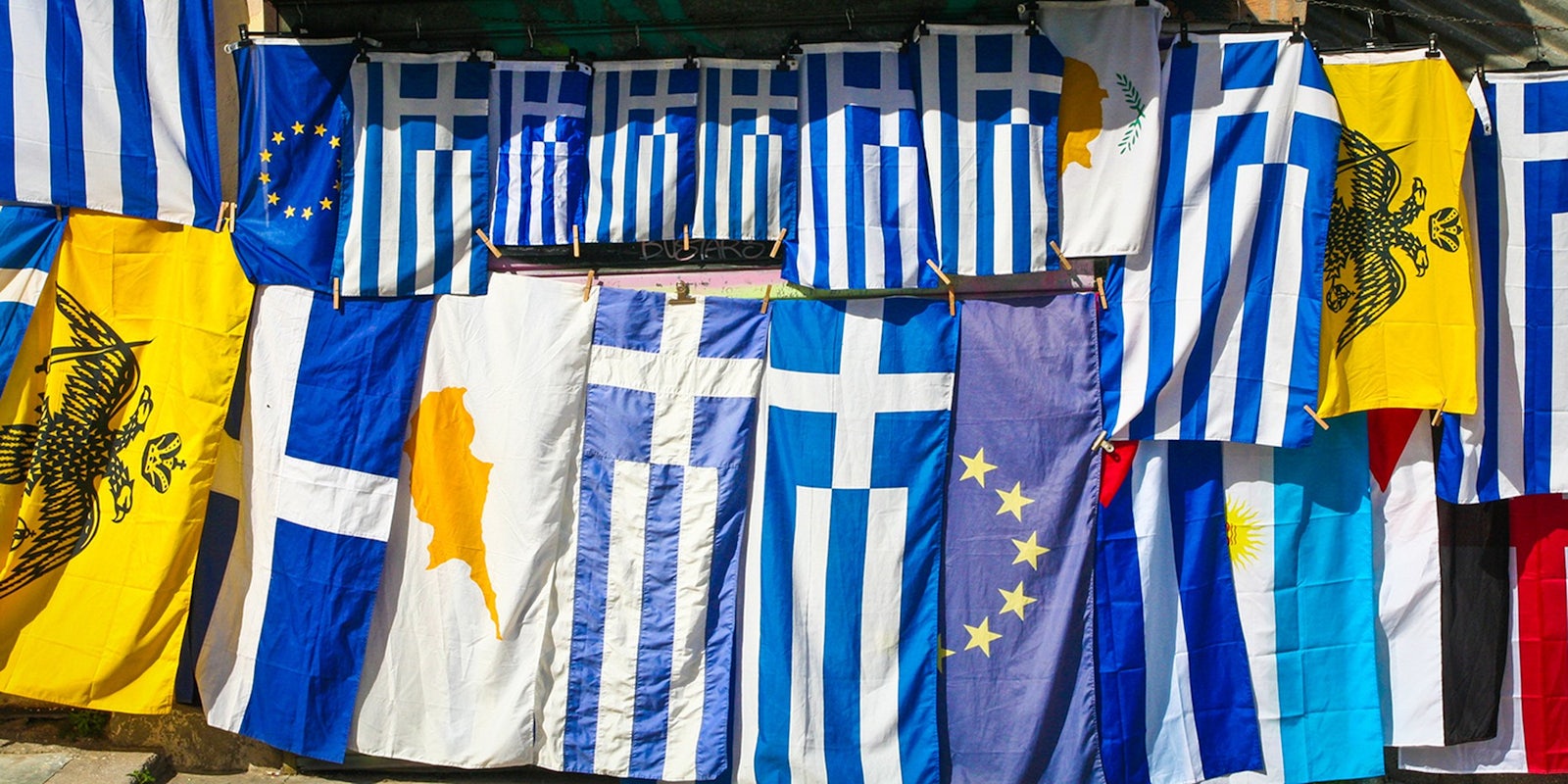As the latest Greek debt crisis reaches a boiling point, Twitter users around the world are saying the policies proposed by foreign governments and international organizations look like a coup.
#ThisIsACoup has been tweeted over 386,000 times and became a worldwide trend on Sunday, according to the data analytics website Topsy.com. But what’s actually going on in Greece and why do so many people think the foreign involvement in Greece’s bailout is a coup?
What’s happening in Greece? Didn’t they sort this financial stuff out years ago?
After Wall Street imploded in 2008, Greece’s economy took a massive hit, becoming the epicenter of the crisis in Europe. Eventually, Greece was barred from borrowing money from the worldwide financial markets. Greek debt soared, reaching 134.6 percent of their annual gross domestic product.
As the debt rose, so did the unemployment rate. This led to rioting in Athens you probably saw on TV in 2011.
Greece eventually received a €109 billion bailout in 2011 from the 18 other nations on the Euro, but that wasn’t enough to stem the economic downfall.
This morning, following an all night summit among its leaders, those 19 members of the Eurozone have reached a deal. Creditors said they would be willing to providing up to €86 billion to keep Greece above water for the next three years.
What’s a coup?
A coup is defined by Google as a “sudden, violent, and illegal seizure of power from a government. So, this isn’t obviously a coup by any usual definition, as no weapons are involved or and no illegal seizures of powers have taken place. Twitter users are more saying this is a coup by proxy.
Who’s behind this so-called coup and what are they doing?
Right now, the finger is pointed at German finance minister Wolfgang Schäuble and German Chancellor Angela Merkel, two leaders of the Greek debt proposals. Twitter users are saying Germany is forcing similar proposals onto Grece that citizens voted against in a “referendum” last week.
Wow. Just wow. #ThisIsACoup http://t.co/749twE5vr9 pic.twitter.com/5y0b7lguer
— Owen Jones (@OwenJones84) July 12, 2015
Paul Krugman, winner of a Nobel Memorial Prize in Economics, said on his New York Times blog that “The trending hashtag ThisIsACoup is exactly right,” adding that “This goes beyond harsh into pure vindictiveness, complete destruction of national sovereignty, and no hope of relief.”
Does that mean Germany is taking over Greece?
No. As a member of the Eurozone, the outcome of this next round of Greek bailouts affects every country that uses the euro. So Wolfgang Schäuble and Angela Merkel have a vested interest, and a responsibility to German taxpayers, to make sure the deal will act in Germany’s interest. Germany may be playing political hardball, that’s up to you to decided, but it is playing by the rules.
Photo via Sharon Mollerus/Flickr (CC BY 2.0)
